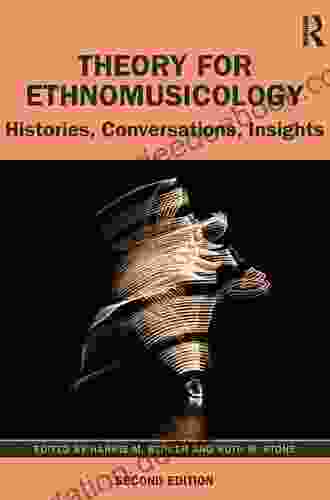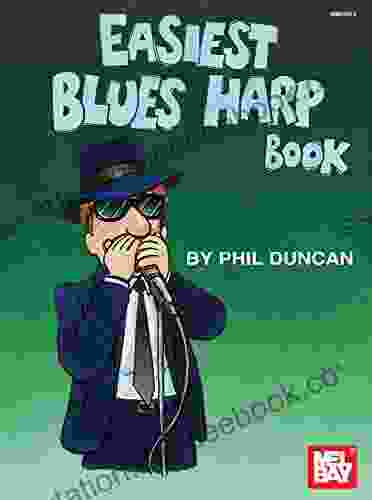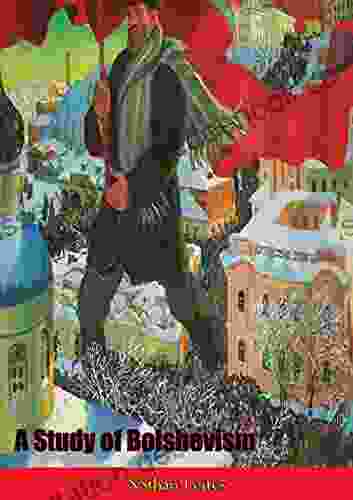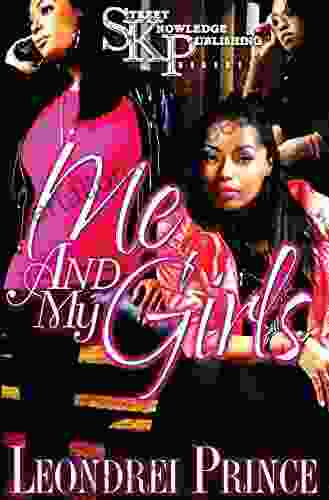Theory For Ethnomusicology: Histories, Conversations, Insights

Ethnomusicology, the study of music in its cultural context, has a rich history of theoretical development. From its origins in the late 19th century to the present day, ethnomusicologists have grappled with fundamental questions about the nature of music, its role in society, and the best methods for studying it.
5 out of 5
| Language | : | English |
| File size | : | 1333 KB |
| Text-to-Speech | : | Enabled |
| Screen Reader | : | Supported |
| Enhanced typesetting | : | Enabled |
| Word Wise | : | Enabled |
| Print length | : | 252 pages |
In this article, we will explore some of the key theories that have shaped the field of ethnomusicology. We will discuss the historical context in which these theories emerged, the controversies they have generated, and the insights they have provided into the nature of music and human experience.
Early Theories of Ethnomusicology
The early years of ethnomusicology were marked by a number of competing theories about the nature of music. Some scholars, such as Carl Stumpf, argued that music was a universal language that could be understood by all humans, regardless of their culture. Others, such as Erich von Hornbostel and Curt Sachs, emphasized the importance of studying music in its cultural context and argued that music could not be fully understood without taking into account the social, economic, and political factors that shaped it.
These early debates helped to lay the foundation for the field of ethnomusicology and set the stage for the development of more nuanced and sophisticated theories in the years to come.
Theories of Music and Culture
One of the central questions that ethnomusicologists have grappled with is the relationship between music and culture. Some scholars, such as Bruno Nettl, have argued that music is a reflection of culture and can be used to understand the values, beliefs, and customs of a society. Others, such as Steven Feld, have emphasized the importance of music's agency and have argued that music can play an active role in shaping culture and society.
Theories of music and culture have been used to explore a wide range of topics, including the role of music in ritual, the relationship between music and dance, and the use of music for political purposes.
Theories of Music and Identity
Another important area of inquiry in ethnomusicology is the relationship between music and identity. Scholars such as Philip Bohlman and Tia DeNora have argued that music can play a powerful role in shaping individual and group identities. Music can be used to express cultural pride, to create a sense of community, and to challenge social norms.
Theories of music and identity have been used to explore a wide range of topics, including the role of music in nationalism, the relationship between music and ethnicity, and the use of music for social change.
Theories of Music and Human Experience
Ethnomusicologists have also developed a number of theories about the nature of music and human experience. Some scholars, such as John Blacking, have argued that music is a fundamental part of human nature and that it plays an important role in human development and well-being. Others, such as Susan McClary, have emphasized the importance of music's social and political dimensions and have argued that music can be used to express and challenge power relations.
Theories of music and human experience have been used to explore a wide range of topics, including the role of music in healing, the relationship between music and emotion, and the use of music for spiritual purposes.
Controversies in Ethnomusicology
Ethnomusicology has not been without its controversies. One of the most heated debates in the field has been over the issue of whether or not ethnomusicologists should be objective in their research. Some scholars, such as Charles Seeger, have argued that ethnomusicologists should strive to be objective and to avoid imposing their own values on the music they study. Others, such as Judith Becker, have argued that it is impossible to be completely objective and that ethnomusicologists should be honest about their own biases and perspectives.
Another major controversy in ethnomusicology has been over the issue of representation. Some scholars, such as Edward Said, have argued that ethnomusicologists have often misrepresented the music of other cultures and that they have failed to give voice to the perspectives of the people they study. Others, such as Steven Feld, have argued that ethnomusicologists can make a positive contribution to the world by helping to promote understanding and respect for different cultures.
These controversies have helped to shape the field of ethnomusicology and have led to a greater awareness of the ethical and political dimensions of research.
The theory of ethnomusicology is a dynamic and evolving field that has been shaped by a number of different perspectives and controversies. By exploring the history of these theories, we can gain a deeper understanding of the nature of music and its role in human experience.
In recent years, there has been a growing interest in interdisciplinary approaches to ethnomusicology. Ethnomusicologists are increasingly working with scholars from other disciplines, such as anthropology, sociology, and musicology, to develop new insights into the relationship between music and culture. This interdisciplinary approach is helping to expand the boundaries of the field and is leading to new and exciting discoveries about the power of music.
5 out of 5
| Language | : | English |
| File size | : | 1333 KB |
| Text-to-Speech | : | Enabled |
| Screen Reader | : | Supported |
| Enhanced typesetting | : | Enabled |
| Word Wise | : | Enabled |
| Print length | : | 252 pages |
Do you want to contribute by writing guest posts on this blog?
Please contact us and send us a resume of previous articles that you have written.
 Book
Book Page
Page Chapter
Chapter Text
Text Story
Story Genre
Genre Library
Library Paperback
Paperback E-book
E-book Magazine
Magazine Newspaper
Newspaper Paragraph
Paragraph Sentence
Sentence Bookmark
Bookmark Bibliography
Bibliography Manuscript
Manuscript Scroll
Scroll Codex
Codex Tome
Tome Bestseller
Bestseller Library card
Library card Biography
Biography Memoir
Memoir Encyclopedia
Encyclopedia Dictionary
Dictionary Stacks
Stacks Archives
Archives Periodicals
Periodicals Study
Study Research
Research Reserve
Reserve Academic
Academic Journals
Journals Rare Books
Rare Books Special Collections
Special Collections Interlibrary
Interlibrary Thesis
Thesis Dissertation
Dissertation Storytelling
Storytelling Theory
Theory Tharran E Gaines
Tharran E Gaines Alice Vl
Alice Vl Randall M Rueff
Randall M Rueff Paul A Djupe
Paul A Djupe Julia Mcguire
Julia Mcguire Colin Fleming
Colin Fleming Annemarie O Brien
Annemarie O Brien Nate May
Nate May Gill Arbuthnott
Gill Arbuthnott Paul L Maier
Paul L Maier Terra Vanzant Stern Phd
Terra Vanzant Stern Phd Susanna Clarke
Susanna Clarke Maddie Frost
Maddie Frost John Mark Sibley Jones
John Mark Sibley Jones Muriel P Lee
Muriel P Lee K Ancrum
K Ancrum Rebecca Setler
Rebecca Setler Derek Beres
Derek Beres D Dennis Hudson
D Dennis Hudson What She Said Stitches
What She Said Stitches
Light bulbAdvertise smarter! Our strategic ad space ensures maximum exposure. Reserve your spot today!

 Eugene PowellRainbows And Rescues Love Salvation Collection: A Symbol of Hope and Renewal
Eugene PowellRainbows And Rescues Love Salvation Collection: A Symbol of Hope and Renewal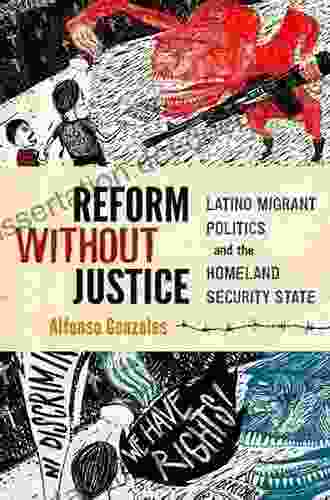
 Bill GrantLatino Migrant Politics and the Homeland Security State: Examining the Impact...
Bill GrantLatino Migrant Politics and the Homeland Security State: Examining the Impact... Thomas MannFollow ·6.1k
Thomas MannFollow ·6.1k Bernard PowellFollow ·9.3k
Bernard PowellFollow ·9.3k Andy HayesFollow ·18.1k
Andy HayesFollow ·18.1k Gus HayesFollow ·16.2k
Gus HayesFollow ·16.2k Duncan CoxFollow ·2.3k
Duncan CoxFollow ·2.3k Cruz SimmonsFollow ·10.2k
Cruz SimmonsFollow ·10.2k Douglas AdamsFollow ·15.3k
Douglas AdamsFollow ·15.3k Andrew BellFollow ·6.6k
Andrew BellFollow ·6.6k

 Keith Cox
Keith CoxFrench Pieces for Flute and Piano: A Journey into...
The world of...
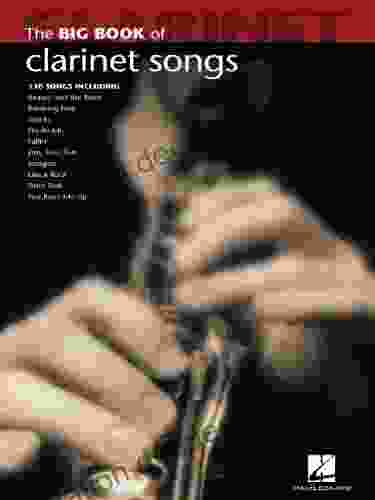
 Justin Bell
Justin BellThe Big Clarinet Songbook: A Musical Treasure for...
The clarinet, with its rich...
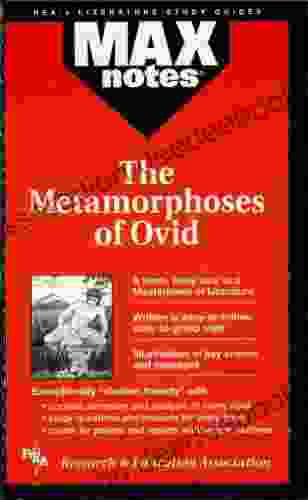
 Jamie Blair
Jamie BlairThe Metamorphoses of Ovid: A Masterpiece of...
An Epic Tapestry of Mythology and...
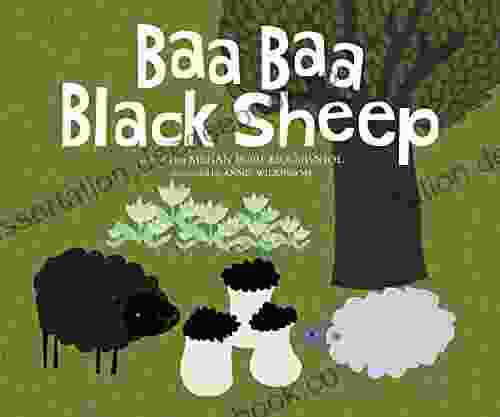
 Alan Turner
Alan TurnerBaa Baa Black Sheep: A Classic Sing-Along Song for Kids
Baa Baa Black Sheep...
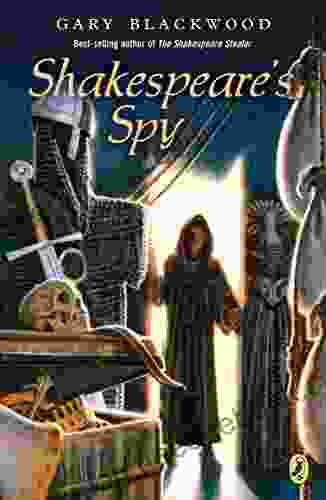
 Bradley Dixon
Bradley DixonUnveiling the Enigmatic Shakespeare Spy: The...
Prologue: The Shadowy World...

 Gilbert Cox
Gilbert CoxUnleash Your Creativity with Plastic Craft Lace Projects:...
Plastic craft lace is a...
5 out of 5
| Language | : | English |
| File size | : | 1333 KB |
| Text-to-Speech | : | Enabled |
| Screen Reader | : | Supported |
| Enhanced typesetting | : | Enabled |
| Word Wise | : | Enabled |
| Print length | : | 252 pages |


